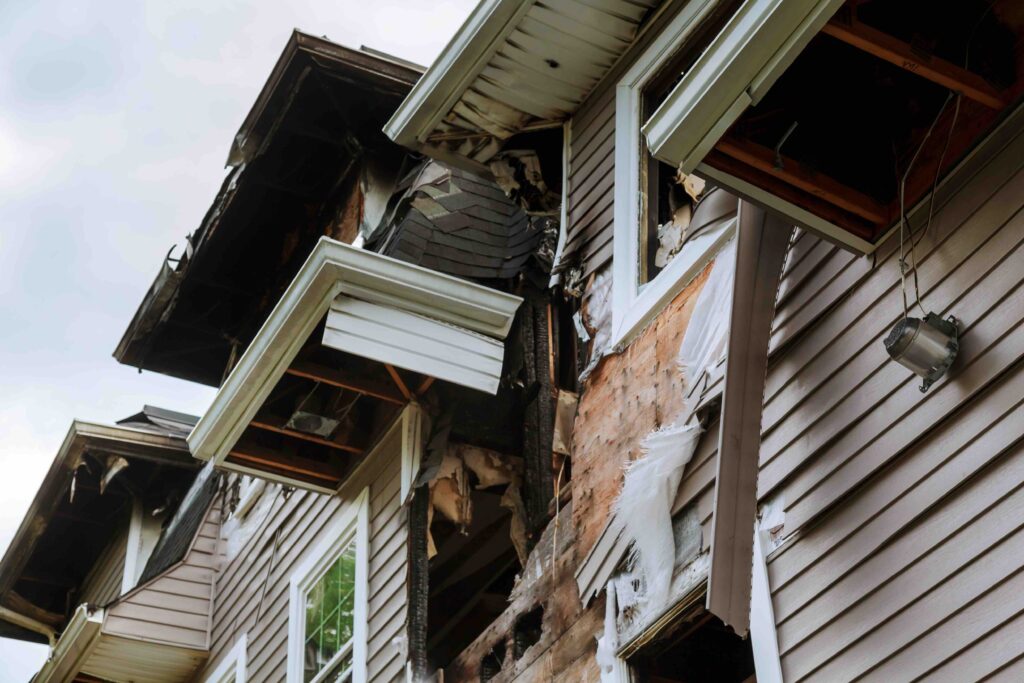Filing a property insurance claim is supposed to provide relief after a loss, but what happens when your claim is denied? For many homeowners and business owners, a denied claim can feel like a dead end, but it doesn’t have to be. Understanding your rights and taking the right steps can help you turn things around and secure the compensation you’re owed.

Table of Contents
ToggleCommon Reasons for Claim Denials
Insurance companies may deny claims for several reasons, including:
- Insufficient Documentation: Not providing enough evidence of the damage or loss.
- Policy Exclusions: Certain damages may not be covered under your policy.
- Missed Deadlines: Failing to file the claim within the required timeframe.
- Disputed Cause of Damage: The insurer argues the damage wasn’t caused by a covered event.
If your claim has been denied, don’t panic there are steps you can take to challenge the decision.
5 Steps to Take After a Denied Claim
1. Review the Denial Letter Carefully
Your insurer is required to provide a written explanation for why your claim was denied. Understanding the reasons for the denial is the first step to challenging it effectively. Look for specific issues like insufficient evidence or exclusions.
2. Gather Additional Evidence
If your claim was denied due to insufficient documentation, strengthen your case by collecting more evidence. Take detailed photos and videos of the damage, obtain repair estimates, and gather receipts for any related expenses.
3. Understand Your Policy
Review your insurance policy to ensure your claim falls within the coverage. Pay close attention to exclusions, deductibles, and coverage limits. This can help you identify whether the insurer’s decision aligns with the terms of your policy.
4. Appeal the Denial
Most insurance companies have an appeals process. Submit a written appeal addressing the reasons for the denial and include any additional evidence. Be persistent and professional in your communication to demonstrate your case’s validity.
5. Consult an Insurance Attorney
If your appeal doesn’t succeed or if you suspect bad faith practices, it’s time to seek legal help. An experienced insurance attorney can review your case, negotiate with the insurer, and, if necessary, take legal action to ensure you get the compensation you deserve.
How Zar Law Firm Can Help
At Zar Law Firm, we specialize in helping clients navigate denied insurance claims. Our team can:
- Analyze your denial letter and insurance policy.
- Gather additional evidence to strengthen your case.
- Negotiate directly with your insurance company.
- File a lawsuit if the insurer is acting in bad faith.
Learn more about how we can assist with denied claims here.
What Is Bad Faith?
Bad faith occurs when an insurer denies a legitimate claim without valid reasons or fails to follow the terms of the policy. Examples include:
- Misrepresenting policy terms.
- Unreasonable delays in processing claims.
- Offering settlements far below the value of the claim.
If you suspect bad faith, you may be entitled to additional damages.
Conclusion: Don’t Give Up After a Denied Claim
A denied insurance claim doesn’t mean the end of the road. By understanding your policy, gathering evidence, and seeking legal assistance, you can fight for the compensation you deserve. At Zar Law Firm, we’re committed to helping you every step of the way.
Call to Action:
Has your property insurance claim been denied? Contact Zar Law Firm today for a free consultation and let us help you get the compensation you’re owed!




